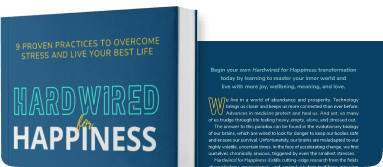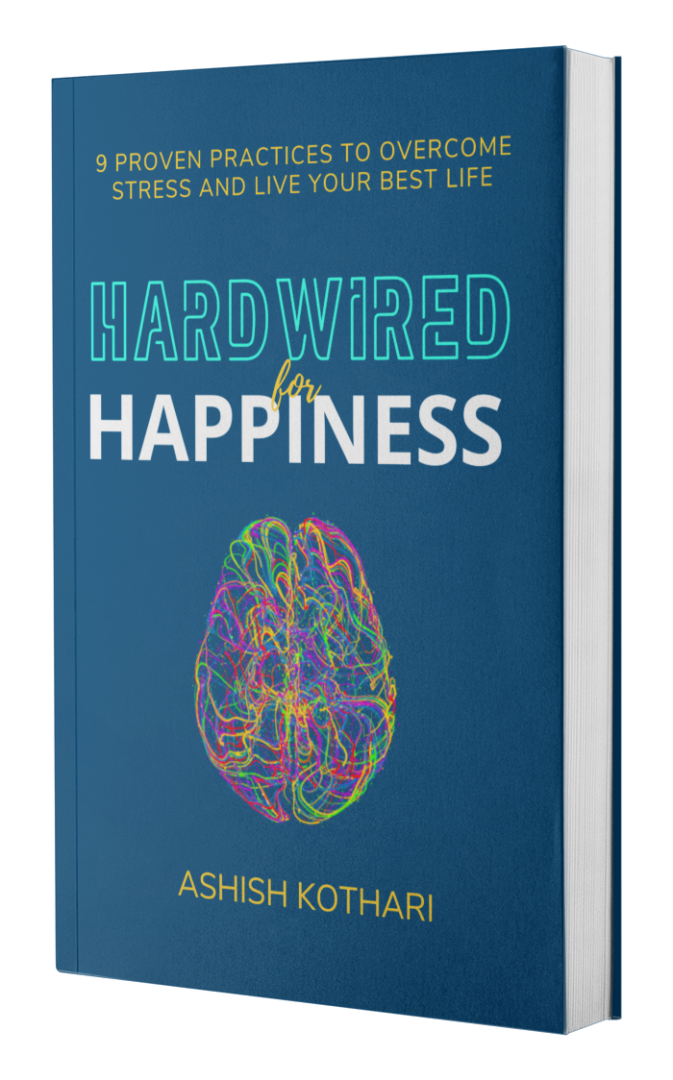The Courage to Change: Building Workplaces Where People Thrive

Why We Need a New Kind of Leadership
Everywhere I go, leaders tell me the same thing: “Our people are exhausted. Engagement is slipping. We’ve tried programs, surveys, and perks, but nothing seems to stick.”
The data echoes their frustration. Only 20% of employees are thriving at work. Nearly 60% report daily stress. We are facing a crisis of wellbeing that isn’t going to be solved by a meditation app or a new benefits package.
I believe what’s needed isn’t just more tools or initiatives. It’s a fundamental shift in how we view leadership. A move away from fixing people from the outside-in, toward transformation that begins inside-out.
This is the heart of a conversation I had with Shawn Quinn, Managing Partner at Lift Consulting and one of the leading voices in positive leadership. Together, we explored what it takes to move from victimhood to agency, from short-term fixes to lasting transformations, and how small, courageous steps can ripple out into massive change.
From Victim to Agent: The Mindset Shift That Changes Everything
Shawn shared a moment in his own life that still rings in my ears. As a young man, he was frustrated with the unfairness of the education system. One day, his wife Lisa turned to him and said bluntly:
“That’s the way the system is. So either change it, or learn how to be happy in it.” – Shawn Quinn
Those words became a mirror. He realized he had been living as a victim, waiting for someone else to fix the system for him. “I’ll never be a victim again,” Shawn told me. “I’ll either change the system I’m in, leave the system, or create a world within it for which I can be happy.”

I resonate deeply with this. As I said in our conversation:
“It requires us to stop seeing ourselves as a victim and start seeing ourselves as an agent. Instead of asking the system to change, we say: what’s the change I can become?” – Ashish Kothari
This isn’t just a personal philosophy, it’s a leadership imperative. Organizations are full of people who feel stuck, powerless, or resigned. But when one person decides to act as an agent of change, they invite others to do the same.
Why Outside-In Fixes Fail
Too often, organizations focus on outside-in approaches: new processes, more policies, another training program. But under pressure, people revert back to their old beliefs.
As Shawn put it:
“If I don’t help shift your beliefs, we can give you a great tool, but under pressure, you’ll just revert back.” — Shawn Quinn
This is why so many leadership programs don’t stick. Skills matter, yes. But without a deeper shift in mindset and identity, change is surface-level at best.
I put it this way during our conversation:
“We have to stop thinking about trainings and start thinking about transformations. Training teaches tools. Transformation shifts beliefs. Without that, people just revert under pressure.” – Ashish Kothari
The invitation here is clear: don’t just ask what skill your people need, ask what belief they need to challenge in order to lead differently.
Small Experiments, Massive Impact
One of my favorite parts of our conversation was the story Shawn told about a client, an HR manager, in Mexico.
His client was facing staggering attrition: 220 people were leaving his plant every month. The standard approach was to conduct endless exit interviews, fix problems reactively, and hope for the best. But this manager tried something different. He flipped the question.
Instead of asking why people were leaving, he asked: “Why are people staying?”
That pivot unlocked a wave of creativity. His team ran small experiments, gave employees more autonomy, and tried new approaches. Within a year, attrition dropped from 220 to just 60 a month saving millions and, more importantly, transforming the culture.
What I love about this story is how ordinary it is. The client wasn’t a CEO, didn’t have a big budget or special authority. He simply shifted his perspective and had the courage to experiment.
As I reflected in the podcast:
“Leading is being courageous long enough to take a step out of your circle of comfort, no matter how small.” – Ashish Kothari
This is the power of small experiments. They build belief. They expand what we think is possible. And over time, they ripple outward to transform entire systems.
The Role of Reflection
Of course, experimentation without reflection is just busyness. One of Shawn’s most practical insights was around building reflection into leadership practice.
“Think through your meetings that week. When was there good energy? When was there low energy? What did you do? What did others do?” — Shawn Quinn
This simple act, of noticing where energy rose and fell, and what role you played, creates the awareness needed for change. In Happiness Squad’s Sunflower Model, awareness sits at the very heart of flourishing, because without it, growth isn’t possible.

As I reminded listeners:
“Start with just becoming aware of interactions that bring or drain your energy. If the same pattern keeps showing up, try one thing different.” – Ashish Kothari
Reflection doesn’t need to take hours. Ten minutes at the end of the day is enough to ask: What did I notice? What can I try differently next time?
The Courage to Stay Outside the Norm
Even when we commit to change, we’ll face resistance. Colleagues may tease us, bosses may pull us back into old patterns, and systems may unconsciously resist.
As Shawn explained:
“Even good-intentioned people will unconsciously pull you back into the norm. Leadership means staying outside the norm long enough to create a new one.” – Shawn Quinn
This is why courage matters. It’s not about grand heroic acts. It’s about staying with the discomfort of new behaviors long enough for others to adapt. It’s about resisting the pull to go back to “business as usual.”
Actionable Tips: Leading Inside-Out
So how can you put this into practice? Here are a few starting points:
- Flip the Question
Stop asking why people are disengaged. Start asking why they are engaged. Build on what’s working, not just what’s broken. - Run Micro-Experiments
Try one small change this week: begin a meeting with gratitude, delegate a decision, or have a tough conversation you’ve been avoiding. - Reflect Daily
Spend 10 minutes at the end of the day noticing where energy rose and fell. Ask yourself what role you played, and what you’ll try differently. - Challenge Old Beliefs
Notice where you’re replicating management behaviors you inherited. Ask: Is this the kind of leader I want to be? - Stay with It
Expect resistance — from yourself and others. Courage means holding your ground long enough for new patterns to take root.
Conclusion: Building Flourishing Workplaces
As leaders, we cannot wait for someone else to fix the system. Nor can we rely on outside-in solutions that never get to the root. Real transformation begins within, with our beliefs, our courage, and our daily choices.
When we lead from the inside out, we not only improve performance. We transform lives. As I shared in the conversation:
“This work of helping people become more positive leaders from the inside out, not outside in, is so powerful.” – Ashish Kothari
So the question I’ll leave you with is this:
What’s the smallest step you can take today to stop being a victim and start becoming an agent of change?
Learn more about Shawn on Linkedin.
Listen to the podcast with Ashish and Shawn below. You can also listen on Apple Podcasts.
Access and subscribe to all of the episodes of the Flourishing Edge Podcast here.
Make Flourishing Your Competitive Edge.


